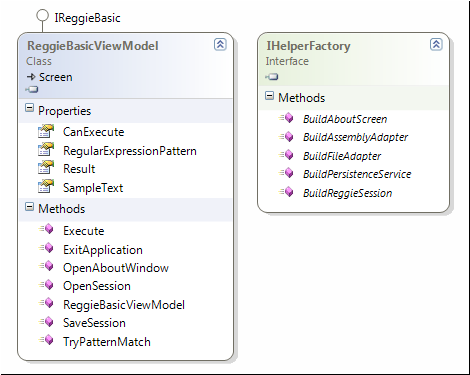Breaking Down a Unit Test from "Reggie" That Uses MoQ
Test driven development is hard. Perhaps it would not be if we were taught to think about OO development from a TDD perspective in the first place; but those muscles are poorly developed, and the exercise leaves you sore and panting a bit. As with physical exercise, there is a reward in the pain. Perhaps others do not see it, but I can already see the benefits accruing in Reggie as I rebuild it with SOLID principles in mind, driven by tests. To help me consolidate where I’m going, and help others whose TDD muscles are likewise under-developed, let us walk through a test, shall we?
First, some context. I’m working on adding persistence to the application: ability to save and re-open session data. I have a ViewModel, called ReggieBasicViewModel, which initially contains the data to persist and which binds the View to my business logic. The ViewModel is being instantiated with a factory object, which allows the ViewModel to build concrete instances of various dependencies. This illustrates the Abstract Factory pattern, and the Open-Closed Principle, but arguably violates Single Responsibility Principle [same link as OCP] by grouping un-related functionality into the factory. The proper factory object is configured in the application’s bootstrapper class, or or it is setup in a unit test using an alternate factory implementation.



